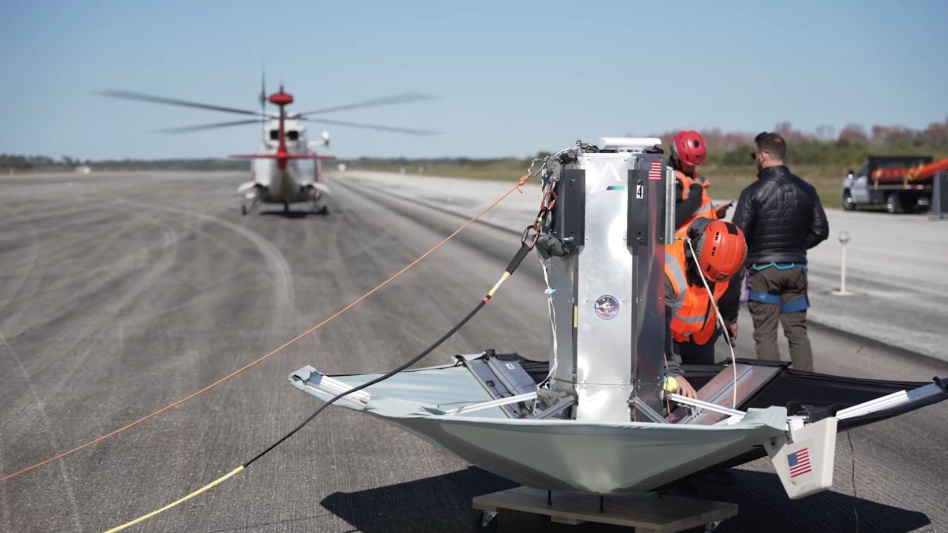
Sierra Space Enters the Delivery Business (Image Credit: Payload)
Sierra Space, the CO-based company behind Dream Chaser, won a $980,000 AFRL contract to study how its Ghost reentry spacecraft could provide point-to-point delivery services for the US government, the company announced yesterday.
The study: Ghost’s existing structure handles 150 kg payloads, but Sierra Space will spend the next year exploring how to ramp up the capacity to 5-10 metric tons.
The study is part technical innovation and part cost-benefit analysis to ensure that the end result provides cost-effective payload sizes for military and commercial customers.
“We were targeting cost down to be [equivalent to] cost up, and we know what the launch mass market is today. We think we need to get to a position where cost down is equally as affordable,” Erik Daehler, Sierra Space’s VP of defense, satellites, and spacecraft systems, told Payload.
Ghost sightings: While the Ghost spacecraft has yet to fly to and return from orbit, the company has completed high-altitude drop tests to demonstrate early versions of the technology.
In beta tests this spring, the company was able to deploy Ghost from 4,000 feet to study how the system would perform when returning from orbit. These types of tests helped determine Ghost’s technical capabilities:
- On-orbit storage: Ghost is built with a five-year life span, allowing customers to pre-stage supplies on orbit and deliver them anywhere in the world in 90 minutes or less.
- Multiple sizes: As part of the AFRL contract, Sierra Space is exploring how it can scale Ghost to provide a variety of payload sizes, using heat shields of different sizes and structures for small payloads compared to larger ones.
- Precise delivery: Using a rudder, the reentry system can steer the payload to deliver to an area within 100 m.
What’s next: Daehler explained that the contract is driven in part by the AFRL’s goal to create standard sizes for earth reentry systems, so that the government can build out a fleet of on-orbit storage containers for multiple use cases, including survival kits, rations, weaponry, and advanced technology.
The company is also exploring with the FAA how to tackle reentry licensing.
“We see that as a great opportunity for us to partner and learn together with the FAA. It also, frankly, is going to be one of our superpowers: being able to be a space mobility and logistics company and return from space regularly,” Daehler said.








